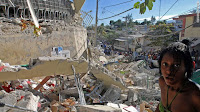This man you most likely never heard of was once one of Africa's most notorious slave traders. His name is Hamad bin Jum'ah bin Rajab Bin Mohammad bin Sa'id al-Murjabi. Thankfully he has a shorter name, Tippu Tip. He was a very powerful Swahili-Zanzibari slave trader who had a strangle hold on the clove and ivory plantations in Eastern Congo and Zanzibar during the latter half of the 19th century. Cloves are flower buds used to make spices. Tippu Tib also controlled the lucrative ivory trade and was said to have acquired as many as 10,000 slaves. How did Tippu Tib acquire and maintain this empire? The same way other empires are built, by force of course. He raided villages in search of slaves and other loot. Those who refused were dealt with by having villages burned and crops destroyed. He was also very friendly with European explorers and assisted them with their foray into the interior of the continent. Such as noted British explorer and abolitionist Dr. David Livingston whose life work was to end the Portuguese and British slave trade. The Dr. had long believed that they were really the most brutal of slavers-until he met the Arabs. During a visit into the interior of Africa in search of the origins of the Nile Dr. Livingston ventured deep into the belly of the Arab slave trade where he witnessed first hand the treacherous treatment of slaves at the hands of Arabs. There is good reason why this man is absent from black studies courses. He shatters the fallacy that Europeans were
uniquely evil in their propagation of the African slave trade. Arab slave traders were unspeakably brutal. Castration was a frequently used tactic to render male slaves docile. These slaves which were not for export, were used to carry ivory to the coast and supplies back to the interior. An estimates 20% of each caravan would die of hunger, disease and exhaustion-losses that required constant replenishment. Due to the political gains of the Belgians and the Germans who were closing in on the Congo from the East and west respectively, Tippu returned to Zanzibar where he would write his autobiography. He would die a wealthy man in 1905.
During Dr. Livingston's journey into what is now the Congo region he recorded first hand accounts in his diary of the atrocities he witnessed. One such incident was the massacre of slave women at the village of Nyangwe by Arab slave traders. This event is credited with precipitating the British closing of the East African slave trade.
June 15th 1871.....As I write I hear the loud wails on the left bank over those who are slain....No one will ever know he exact loss on this bright sultry summer morning, it gave me the impression of being in hell. The Arabs estimate the deaths at between 400 & 500 souls.
This may sound counter intuitive to most, however although the world is indeed a dastardly place for hundreds of millions. It is far less so today than it has been. The atrocities that we are informed about via cable news as horrific as they are, were far more frequent is size and scope during previous centuries. Every civilization on virtually every continent has a bloody and/or oppressive history. It is fashionable in many academic circles to insinuate that Europeans have a virtual monopoly on barbarity and slavery. However that opinion is dishonest to put it mildly. The slave trade was a multi-ethnic cooperative that benefited all of its practitioners-regardless of color. Misrepresenting the truth about such dark period in world history only contributes to the divisiveness we are currently experiencing.




Comments